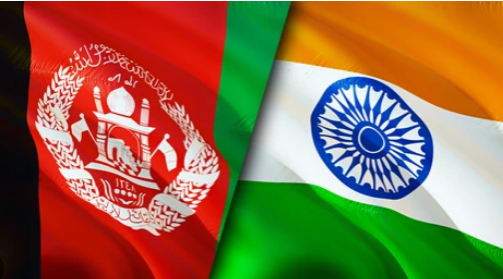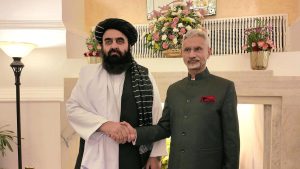India Returns to Kabul: A Calculated Gamble to Rebuild Ties with Taliban-Led Afghanistan

After nearly four years of silence behind shuttered gates, India’s tricolor flag will once again fly over its embassy in Kabul. The announced was made on Friday by Foreign Minister Subrahmanyam Jaishankar, marking one of New Delhi’s boldest foreign-policy steps in recent years; and a pragmatic acknowledgment that Afghanistan, even under Taliban rule, remains too strategically vital to ignore.

The decision to reopen the embassy comes amid quiet diplomatic recalibrations across the region. Since the Taliban’s dramatic return to power in August 2021, India has maintained only limited contact through a small technical mission. The full diplomatic reopening, signals not endorsement but engagement. This is a subtle distinction that reflects New Delhi’s complex balancing act between principle, security and regional influence.
India was among Afghanistan’s closest allies during the US-backed democratic era. Indian-built roads, schools, hospitals and parliament buildings became symbols of soft power and goodwill. When Kabul fell to the Taliban, the embassy’s evacuation, carried out in haste amid collapsing security, left behind both an unfinished chapter and uneasy vacuum.
Now, four years later, India is returning to a transformed landscape. The Taliban, still unrecognized internationally, face mounting economic isolation, sanctions and internal divisions. Yet they have quietly courted regional engagement from China’s infrastructure overtures to Russia’s oil deals, in a bid to gain legitimacy and foreign investment.
The India reopening represents both a diplomatic recalibration and a security imperative. The government remains deeply concerned about cross-border militancy and the potential use of Afghan soil by anti-India groups. Maintaining a presence in Kabul offers eyes, ears, and influence in a region where the geopolitical ground is shifting fast.
Beyond geopolitics, there are economic and humanitarian motivations. Indian traders have long viewed Afghanistan as a bridge to Central Asia’s energy markets. The resumption of diplomatic operations could help revive stalled projects and facilitate humanitarian aid, which India has continued to supply through UN agencies, including wheat, vaccines and medicines.
Families displaced by the Taliban’s takeover have also appealed to New Delhi for support. Some hope that a reopened embassy could speed up visa services, family reunifications, and educational opportunities for Afghan students who once studied in Indian universities.

Still, India’s decision comes with risks. Cautions at the highest that normalizing diplomatic engagement with the Taliban could undercut international pressure on the regime’s human rights record, particularly its treatment of women and minorities. Others argue that India cannot afford to stay on the sidelines while China, Pakistan, and Iran deepen their footholds in Afghanistan.
When the embassy doors reopen and are guarded, likely by a smaller security contingent, it will signal India’s return to a country at the intersections of its past investments and future ambitions.
The people of Kabul who are still navigating life under the Taliban’s austere rule, the sight of an Indian flag fluttering once more, may evoke memories of a more hopeful era. New Delhi is taking a cautious step into a familiar and profoundly altered neighborhood, a space where diplomacy like survival depends on delicate balance.








